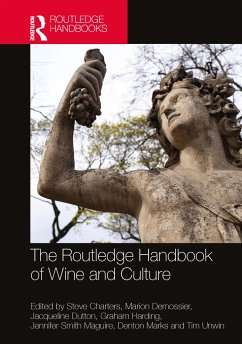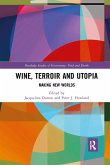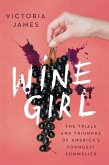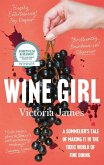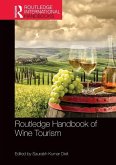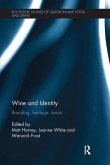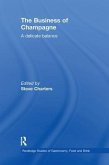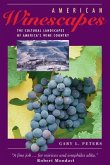This title was a prize winner at the OIV (International Organisation of Vine and Wine) Awards 2023.
The link between culture and wine reaches back into the earliest history of humanity. The Routledge Handbook of Wine and Culture brings together a newly comprehensive, interdisciplinary overview of contemporary research and thinking on how wine fits into the cultural frameworks of production, intermediation and consumption.
Bringing together many leading researchers engaged in studying these phenomena, it explores the different ways in which wine is constructed as a social artefact and how its representation and use acquire symbolic meaning. Wine can be analysed in different ways by varying disciplines involved in exploring wine and culture (anthropology, economics and business, geography, history and sociology, and as text). The Handbook uses these as lenses to consider how producers, intermediaries and consumers use and create cultural significance. Specifically, the work addresses the following: how wine relates to place, belief systems and accompanying rituals; how it may be used as a marker of the identity and mechanisms of civilising processes (often in conjunction with food and the arts); how its framing intersects with science and nature; the ideologies and power relations which arise around all these activities; and the relation of this to wine markets and public institutions.
This is essential reading for researchers and students in education for the wine industry and in the humanities and social sciences engaged in understanding patterns of human ingenuity and interaction, such as sociology, anthropology, economics, health, geography, business, tourism, cultural studies, food studies and history.
The link between culture and wine reaches back into the earliest history of humanity. The Routledge Handbook of Wine and Culture brings together a newly comprehensive, interdisciplinary overview of contemporary research and thinking on how wine fits into the cultural frameworks of production, intermediation and consumption.
Bringing together many leading researchers engaged in studying these phenomena, it explores the different ways in which wine is constructed as a social artefact and how its representation and use acquire symbolic meaning. Wine can be analysed in different ways by varying disciplines involved in exploring wine and culture (anthropology, economics and business, geography, history and sociology, and as text). The Handbook uses these as lenses to consider how producers, intermediaries and consumers use and create cultural significance. Specifically, the work addresses the following: how wine relates to place, belief systems and accompanying rituals; how it may be used as a marker of the identity and mechanisms of civilising processes (often in conjunction with food and the arts); how its framing intersects with science and nature; the ideologies and power relations which arise around all these activities; and the relation of this to wine markets and public institutions.
This is essential reading for researchers and students in education for the wine industry and in the humanities and social sciences engaged in understanding patterns of human ingenuity and interaction, such as sociology, anthropology, economics, health, geography, business, tourism, cultural studies, food studies and history.
'Food and eating as a component of culture has been a prosperous field of study for the last few decades. For myself, I always felt a bit daunted at taking on the often esoteric-seeming culture of wine. But in this book, the international, interdisciplinary and learned team of editors have produced a wonderful introduction to the field that allays all anxieties. It is an impressive collection, and written in a lively fashion.'
Stephen Mennell, author of All Manners of Food, Professor Emeritus of Sociology, University College Dublin.
'With a massive all star cast of social scientists and more this new compendium does nothing less than show how that heavenly beverage, wine, touches every part of the culture of much of the world. Extravagantly edited and carefully written, this is a handbook for the ages.'
Orley Ashenfelter, Princeton University, American Association of Wine Economists (President), and Editorial Boards, Journal of Wine Economics and Journal of Cultural Economics .
'An enchanting and authoritative sampling, or tasting, or wine aspect of wine lore and information. Not just about production and consumption, the Handbook evokes creative thinking about wine in society, economy and personal life.'
Professor Paul Freedman, Chester D. Tripp Professor of History, Dept. of History, Yale University.
'Wine culture can be intimidating. Happily, we now have a Handbook that puts out the welcome mat for newcomers, but also provides nuanced analysis for seasoned wine scholars. This broad-reaching compendium walks readers through the transnational expanse of wine culture that touches business, economics, geography, history. The multidisciplinary team helps us to appreciate wine as a material good but also a cultural product embedded in ideologies and power relations. It is an indispensable touchstone for future research on wine.'
Josée Johnston, co-author of Foodies, Professor of Sociology, University of Toronto.
"More than a handbook, this volume is an invitation to explore wine as a cultural object and phenomenon. From anthropology to economics, scholars from a variety of disciplines explore the culture of wine from novel perspectives. The reader can delve into the colonial past and legacy of wine, engage with current environmental issues or think about what the future might hold for the production of wine.
Showing that wine is good to think, this volume will appeal to wine lovers and scholars alike. The quality of the writing and the breadth of the topics make this handbook an excellent resource for anyone interested in delving into the cultural importance of wine.
The Routledge Handbook of Wine and Culture is an excellent addition to the growing scholarship on wine and culture. What is particularly remarkable about this volume is the breadth of the topics covered and the complementary nature of the interdisciplinary research. This work is a wonderful addition to academic and home libraries."
Rachel Black, Associate Editor of Food and Foodways, Associate Professor, Anthropology Dept., Connecticut College.
Stephen Mennell, author of All Manners of Food, Professor Emeritus of Sociology, University College Dublin.
'With a massive all star cast of social scientists and more this new compendium does nothing less than show how that heavenly beverage, wine, touches every part of the culture of much of the world. Extravagantly edited and carefully written, this is a handbook for the ages.'
Orley Ashenfelter, Princeton University, American Association of Wine Economists (President), and Editorial Boards, Journal of Wine Economics and Journal of Cultural Economics .
'An enchanting and authoritative sampling, or tasting, or wine aspect of wine lore and information. Not just about production and consumption, the Handbook evokes creative thinking about wine in society, economy and personal life.'
Professor Paul Freedman, Chester D. Tripp Professor of History, Dept. of History, Yale University.
'Wine culture can be intimidating. Happily, we now have a Handbook that puts out the welcome mat for newcomers, but also provides nuanced analysis for seasoned wine scholars. This broad-reaching compendium walks readers through the transnational expanse of wine culture that touches business, economics, geography, history. The multidisciplinary team helps us to appreciate wine as a material good but also a cultural product embedded in ideologies and power relations. It is an indispensable touchstone for future research on wine.'
Josée Johnston, co-author of Foodies, Professor of Sociology, University of Toronto.
"More than a handbook, this volume is an invitation to explore wine as a cultural object and phenomenon. From anthropology to economics, scholars from a variety of disciplines explore the culture of wine from novel perspectives. The reader can delve into the colonial past and legacy of wine, engage with current environmental issues or think about what the future might hold for the production of wine.
Showing that wine is good to think, this volume will appeal to wine lovers and scholars alike. The quality of the writing and the breadth of the topics make this handbook an excellent resource for anyone interested in delving into the cultural importance of wine.
The Routledge Handbook of Wine and Culture is an excellent addition to the growing scholarship on wine and culture. What is particularly remarkable about this volume is the breadth of the topics covered and the complementary nature of the interdisciplinary research. This work is a wonderful addition to academic and home libraries."
Rachel Black, Associate Editor of Food and Foodways, Associate Professor, Anthropology Dept., Connecticut College.

